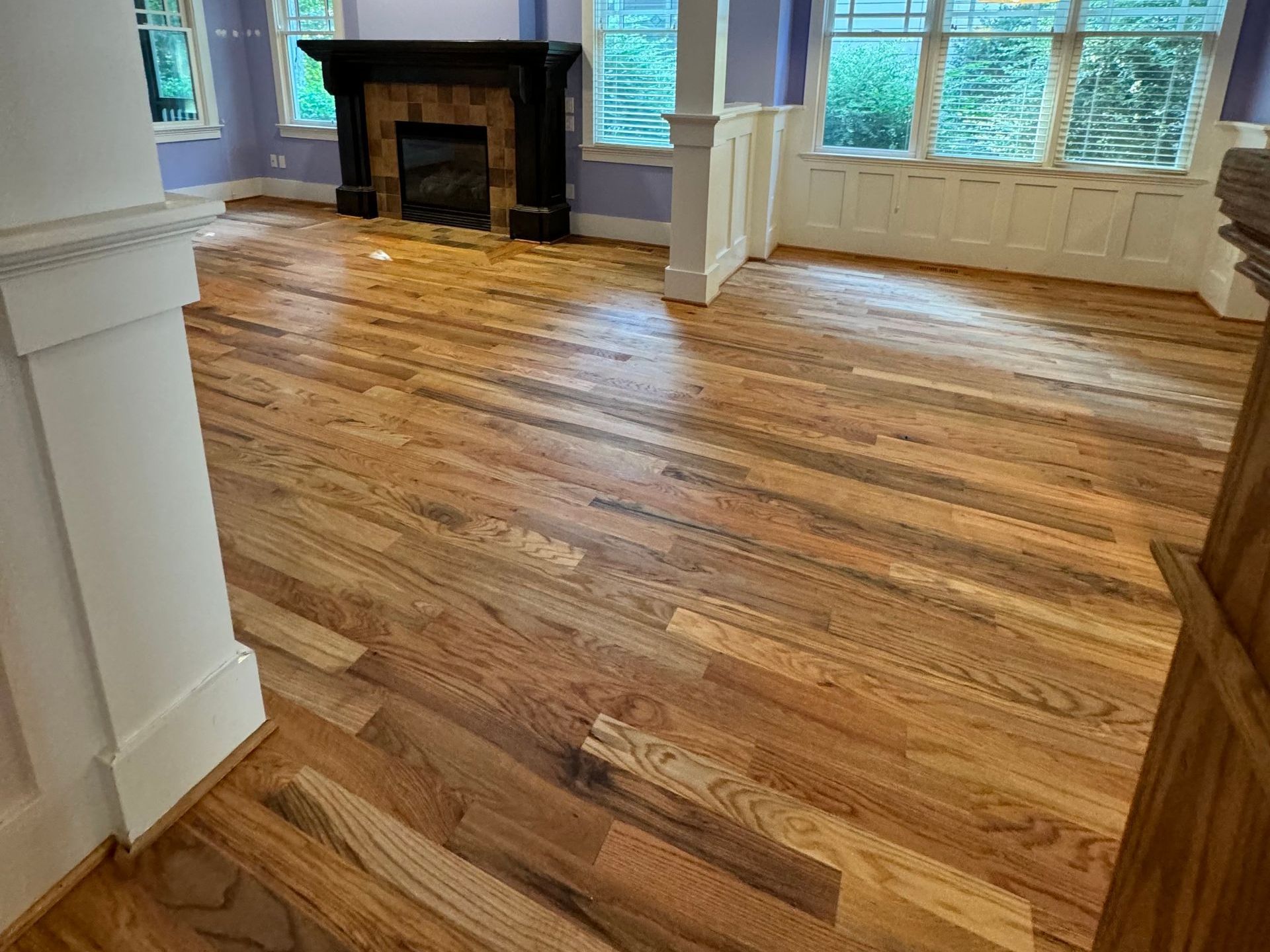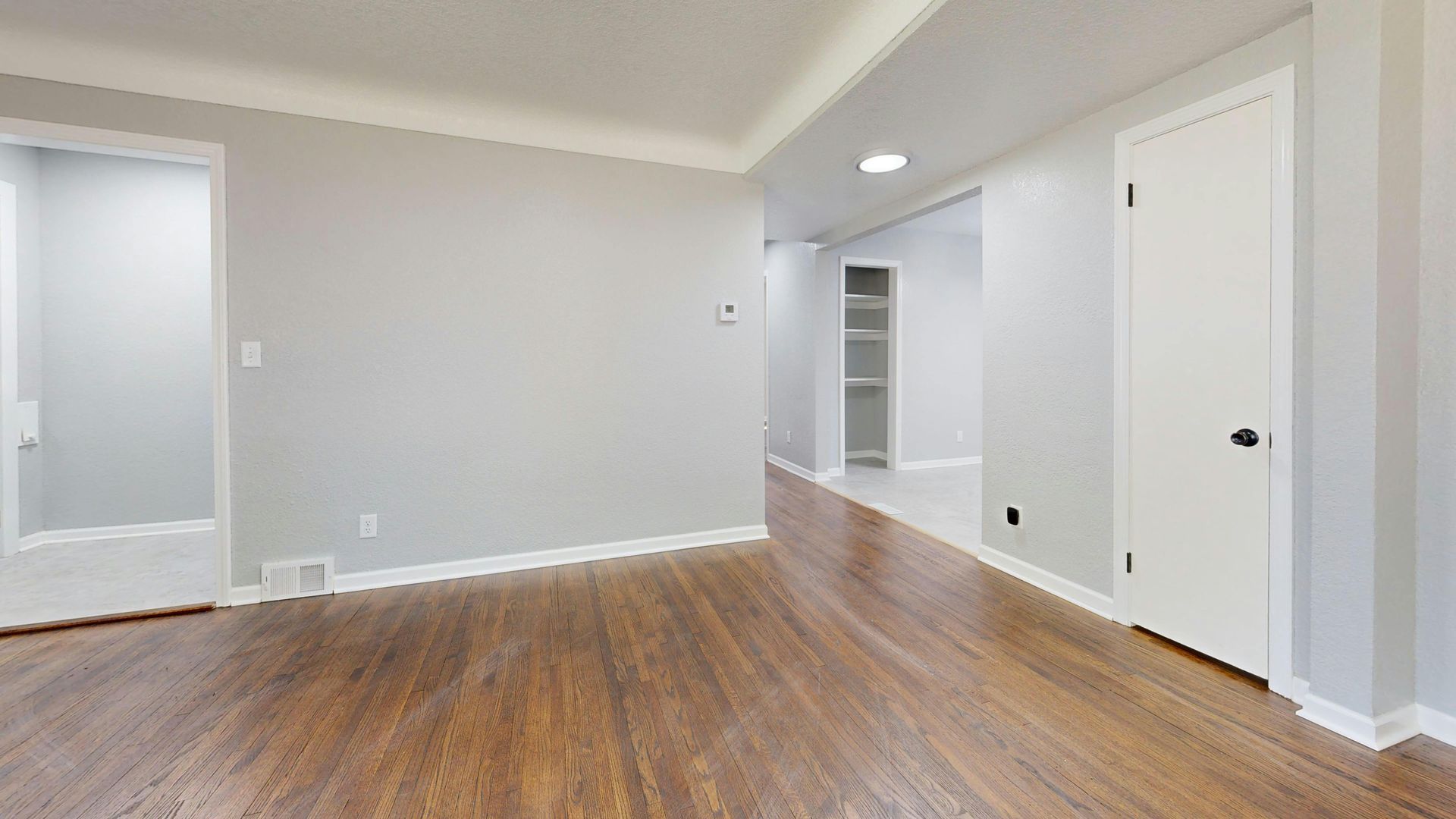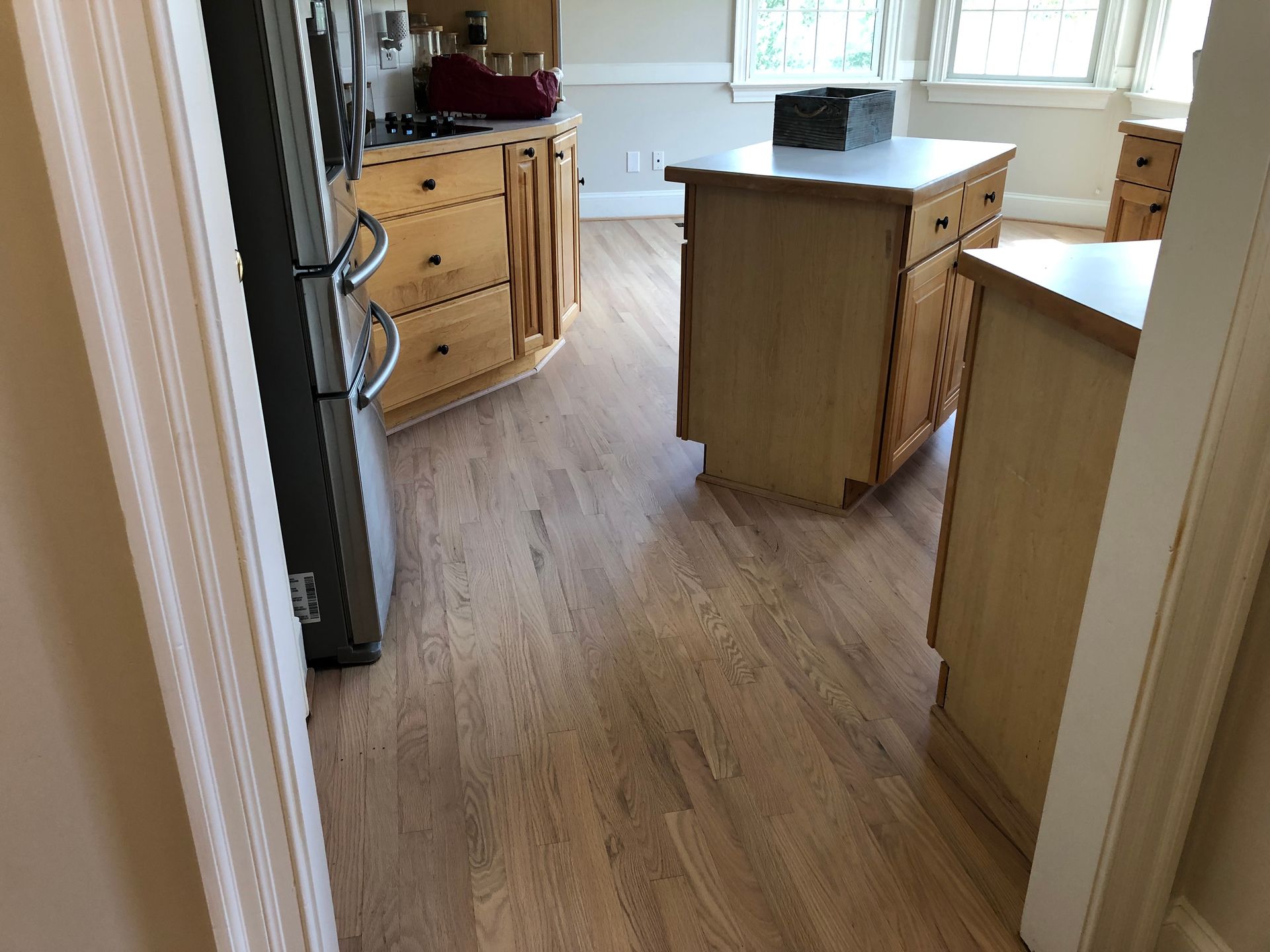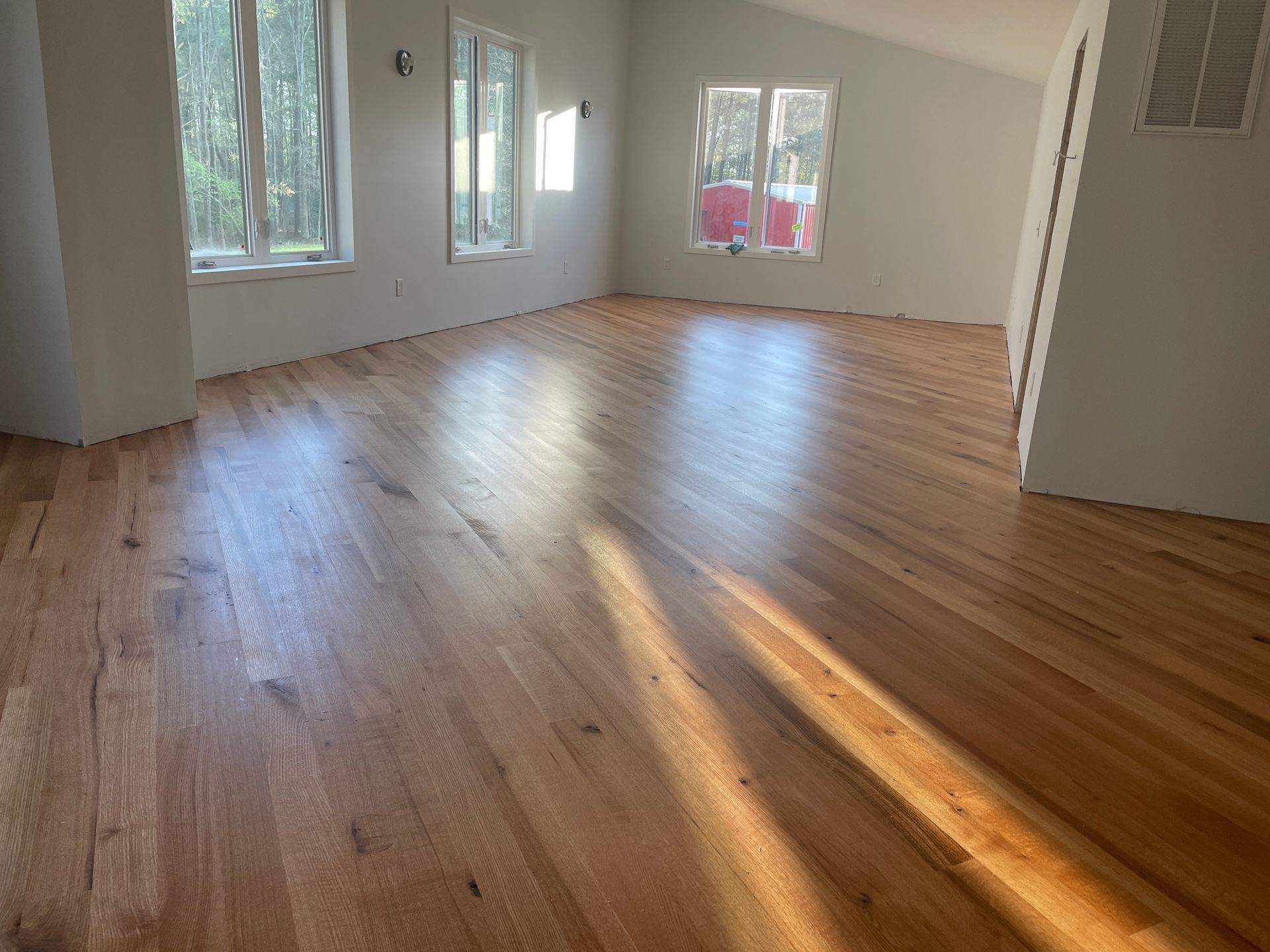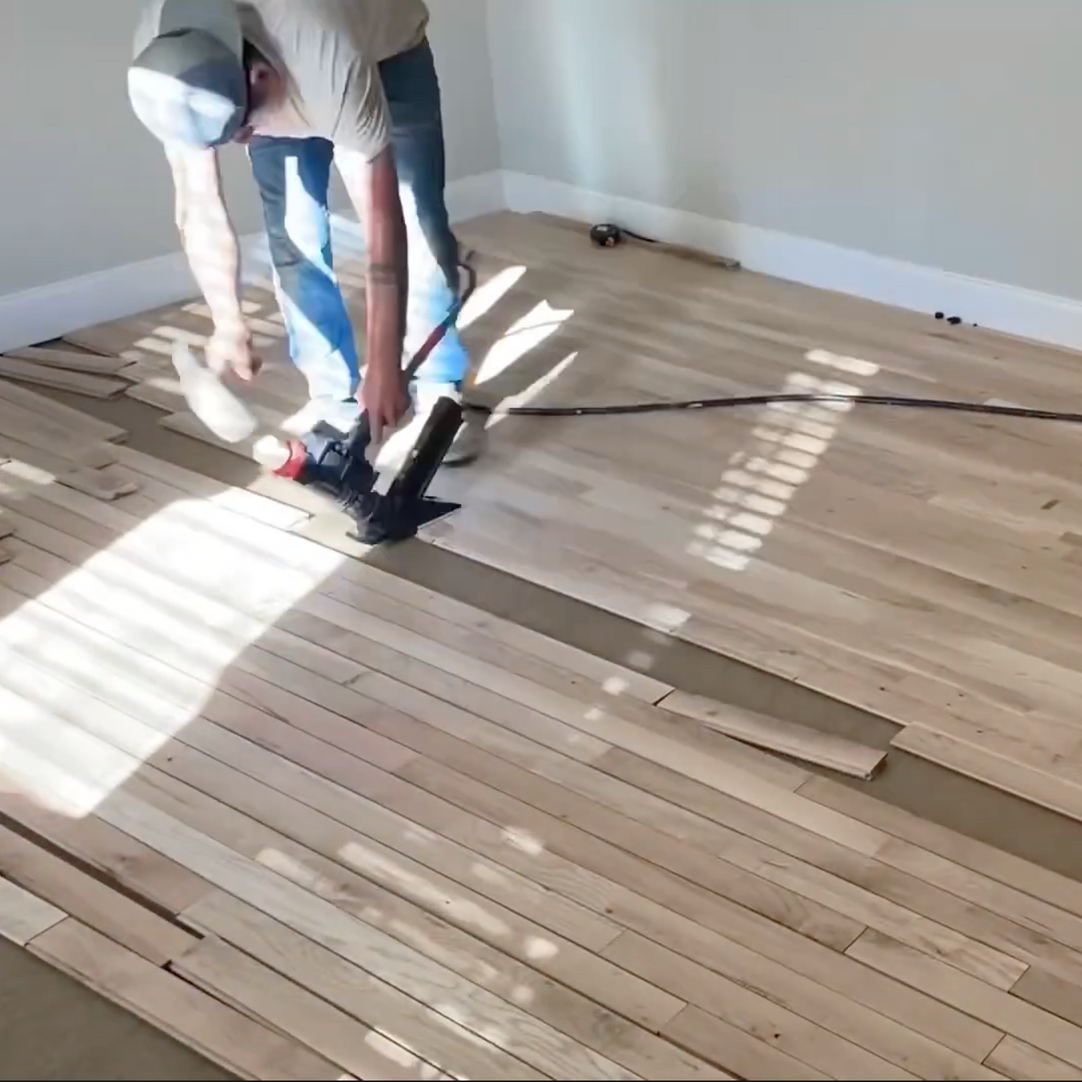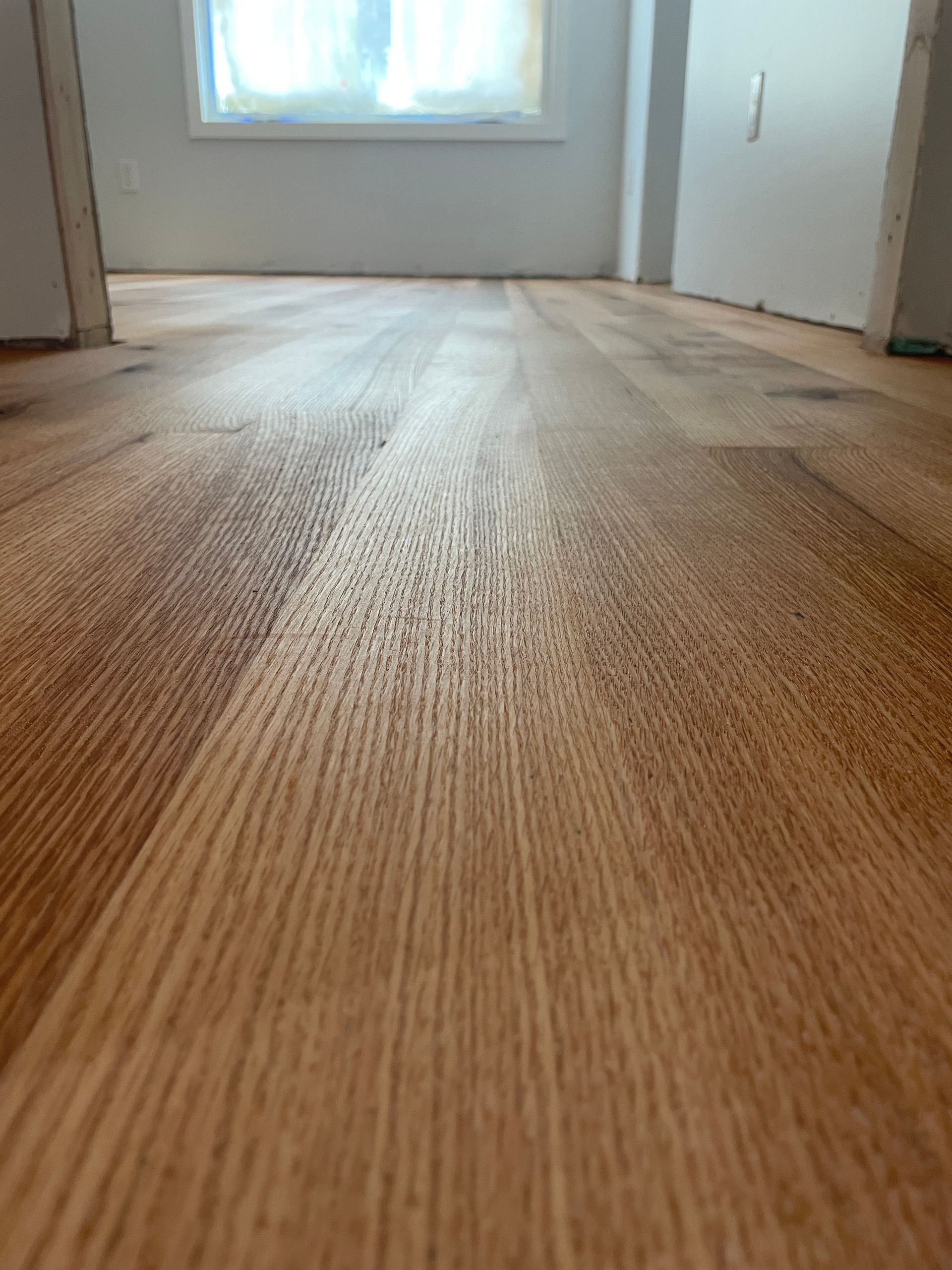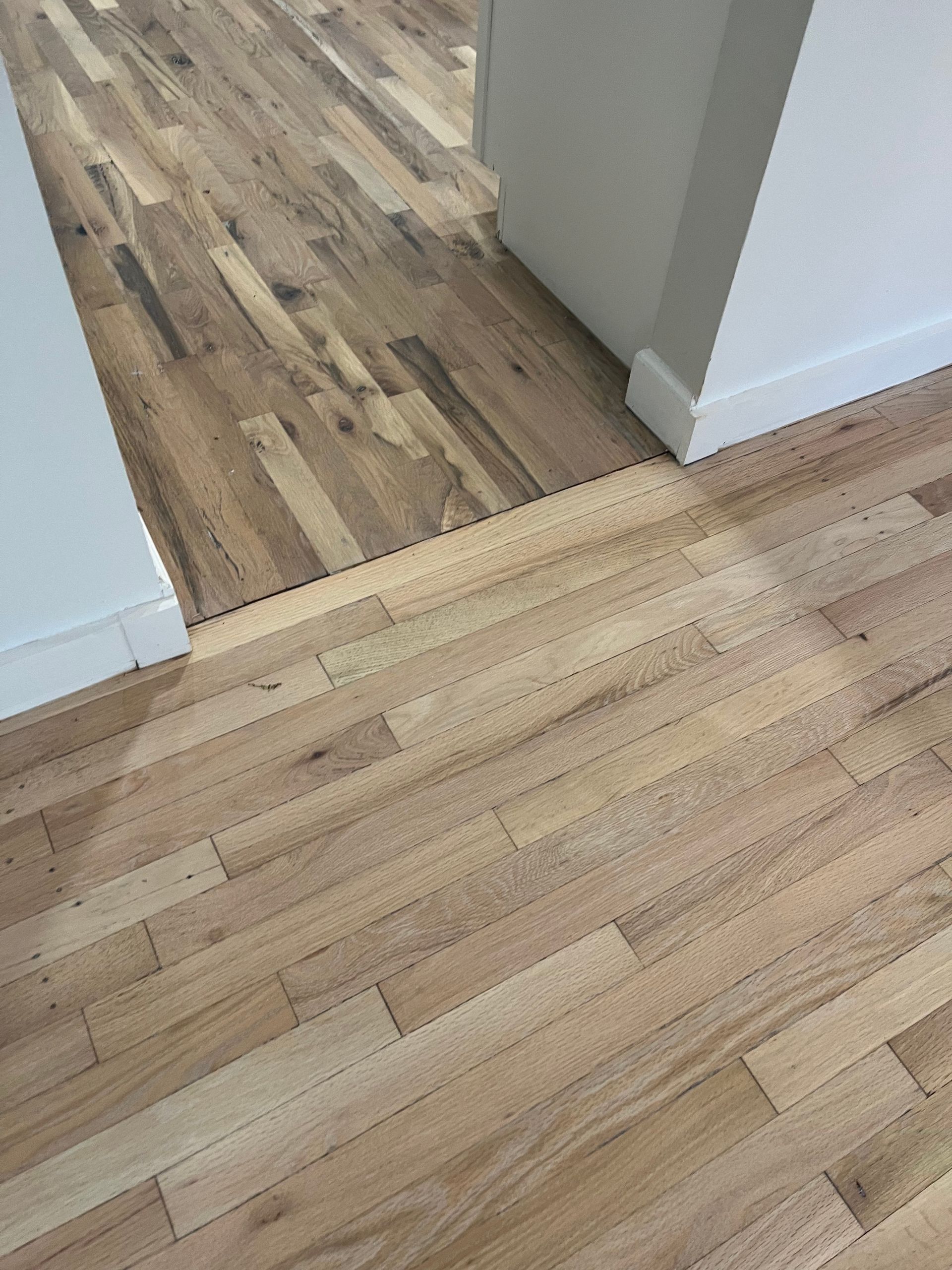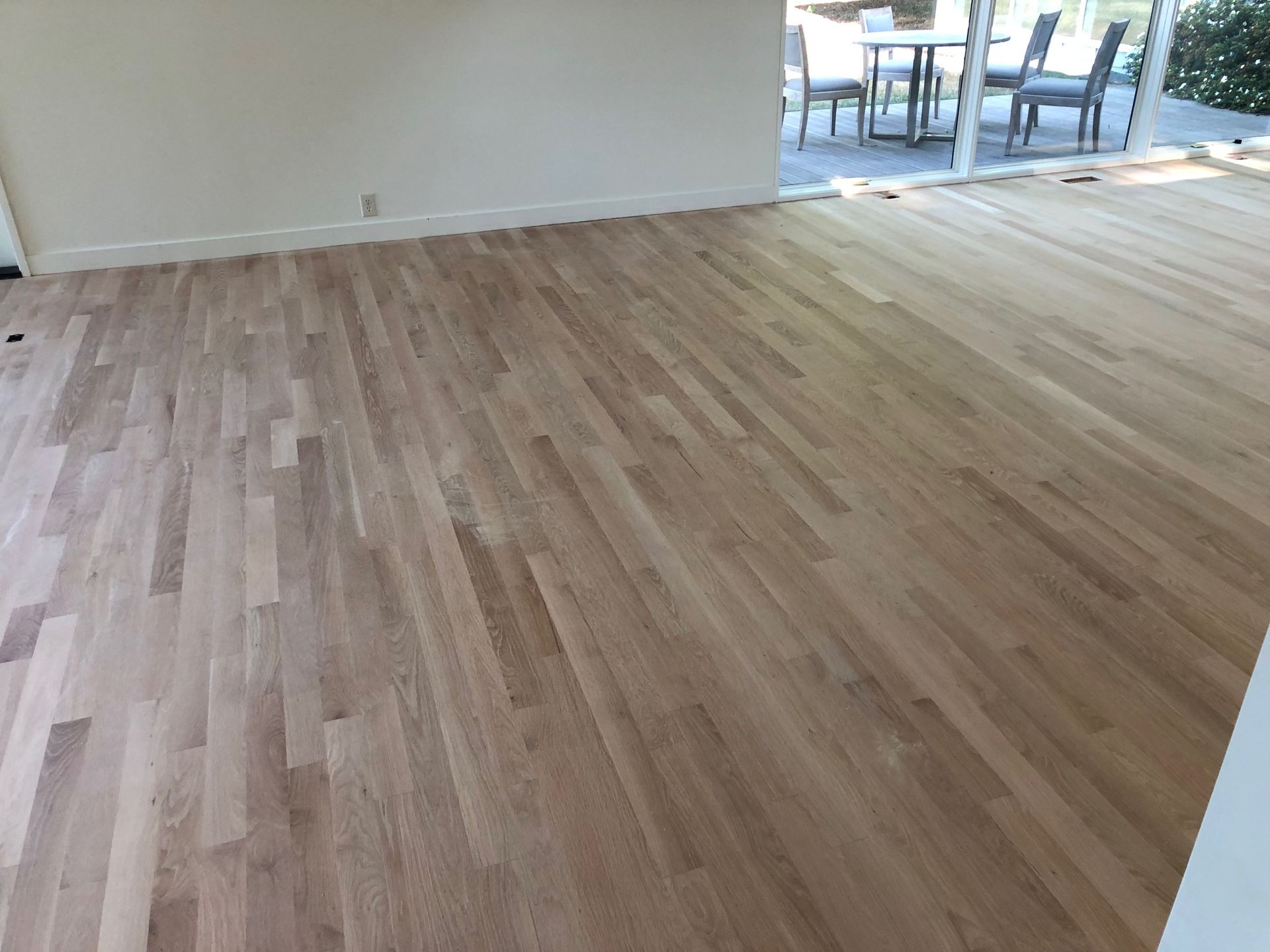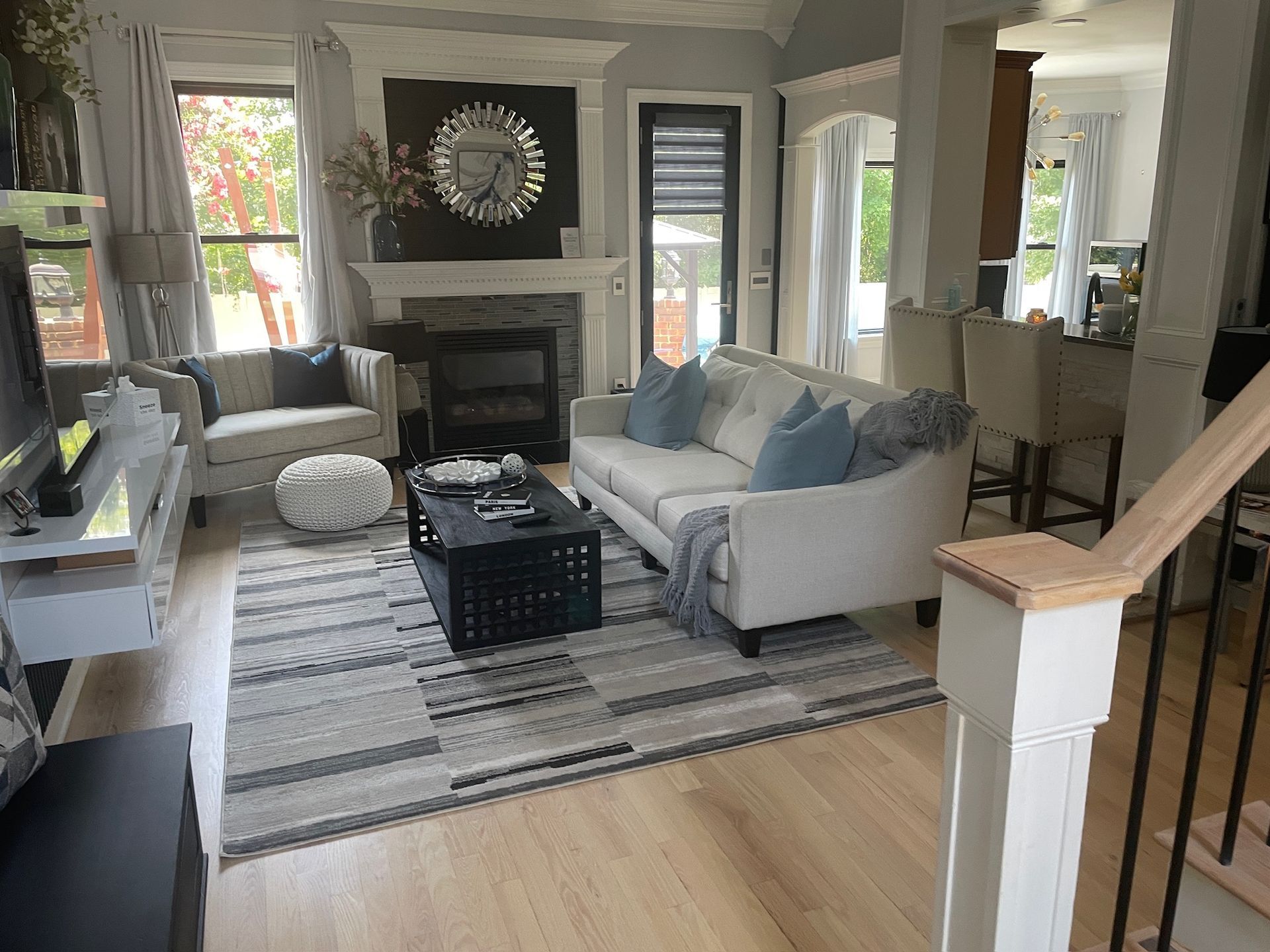Hardwood Floor Maintenance Tips: Keep Your Floors Beautiful for Years to Come
The right maintenance routine keeps them looking their best.
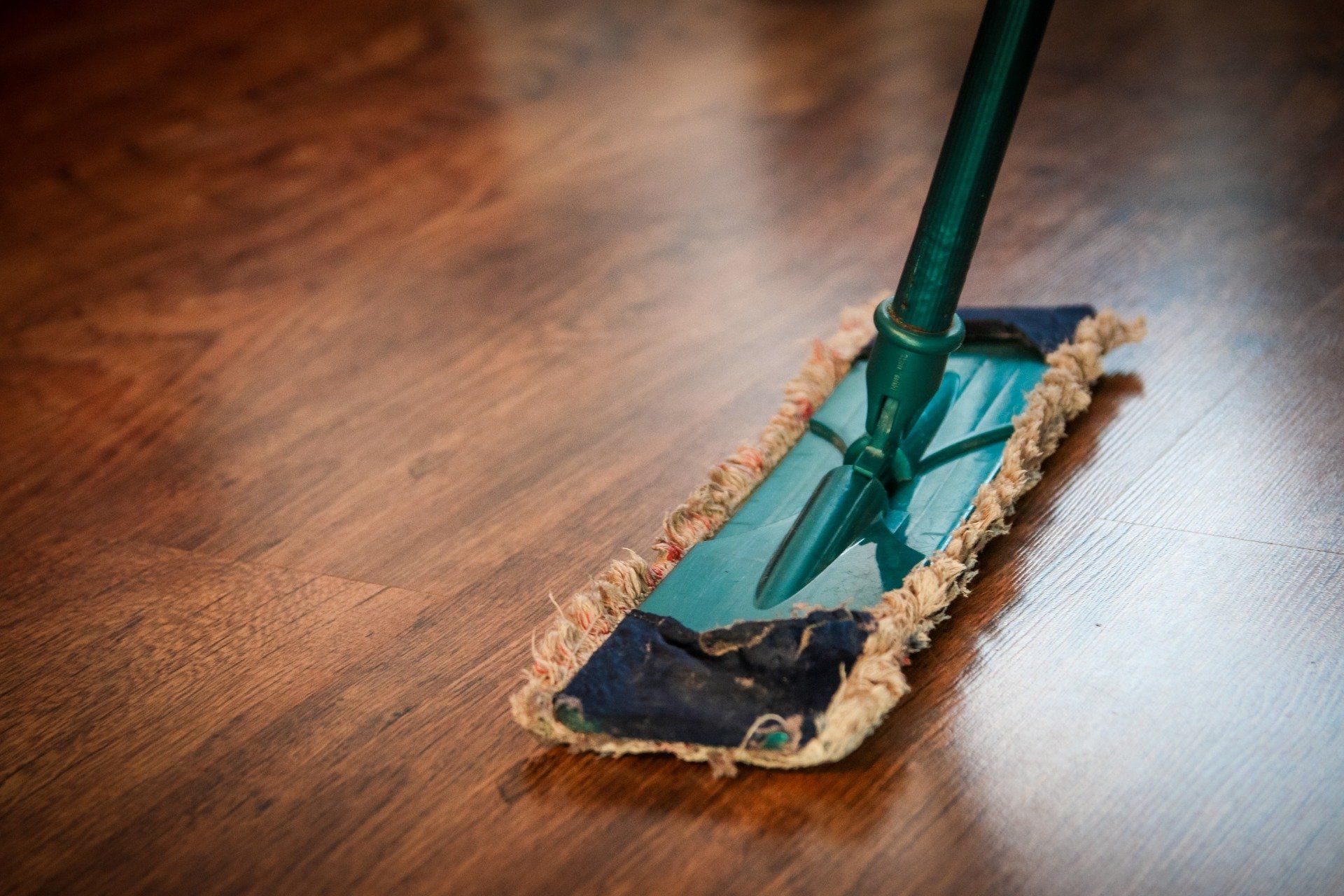
There’s something timeless about hardwood floors — the way light reflects off the grain, the warmth they bring to a home, and that feeling of real wood under your feet. When cared for properly, hardwood floors can last for generations. But even the most durable floors need the right maintenance routine to stay looking their best.
At Grades Hardwoods, we specialize in natural oil finishes and professional hardwood floor care across the Triangle — from Raleigh and Cary to Chapel Hill and beyond. Over the years, we’ve helped countless homeowners restore and protect their floors, and one of the most common questions we hear is:
“What’s the best way to maintain my hardwood floors without having to sand and refinish them?”
The good news? With the right habits, gentle cleaners, and occasional professional maintenance, your hardwood floors can look beautiful for decades — without ever needing a full sanding.
In this post, we’ll walk you through the essential hardwood floor maintenance tips that protect your investment, preserve your finish, and keep your home shining.
1. Start with the Basics: Regular Cleaning Done Right
Your daily and weekly cleaning routine sets the foundation for long-term hardwood floor health. While it’s tempting to use whatever floor cleaner you have on hand, wood floors require a little extra care.
Avoid Harsh Chemicals
Many all-purpose cleaners and even vinegar-water mixes are too acidic for hardwoods. Over time, these can dull the finish, leave streaks, or even strip protective layers. Instead, always choose a pH-neutral cleaner designed specifically for hardwood floors.
We recommend Bona Hardwood Floor Cleaner, a trusted and widely available option that safely removes dirt and grime without damaging your finish. Whether your floors are sealed with polyurethane or finished with natural oil, a pH-neutral cleaner helps maintain that delicate balance — cleaning without stripping.
Choose the Right Mop
How you clean matters just as much as what you clean with. Skip the heavy, water-soaked mops — standing moisture is one of hardwood’s biggest enemies. Instead, opt for a microfiber mop or a flat spray mop with a gentle cleaning pad. These tools lift dust and dirt without scratching or oversaturating the surface.
For high-traffic areas like entryways or kitchens, you can also hand clean your floors using a soft cloth or microfiber towel. Simply spray a small section with your pH-neutral cleaner, wipe it dry, and move to the next spot.
Remember: less water, more care. A damp mop is fine — a wet one is not.
2. Protect Your Floors from Everyday Wear
Even if you’re cleaning regularly, daily life takes its toll on hardwood floors. The key to longevity is minimizing damage before it happens.
Use Mats and Rugs Wisely
Place mats at every exterior door to trap dirt and grit that could scratch your floors. Area rugs in high-traffic areas (like hallways and living rooms) can also help, but make sure the rug pads underneath are non-staining and breathable. Avoid rubber-backed mats — they can trap moisture and discolor your finish over time.
Mind Your Furniture
Small details make a big difference. Always use felt pads under chair and table legs, and replace them as they wear down. Sliding furniture across hardwood floors, even a few inches, can leave permanent marks. If you have pets, keep their nails trimmed to prevent surface scratching — your floors (and your furniture) will thank you.
3. Keep the Right Indoor Environment
Wood is a living material — it expands and contracts with changes in humidity and temperature. That’s perfectly natural, but extremes can cause problems like gapping, cupping, or cracking.
Control Humidity
Ideally, your home should stay between 35% and 55% humidity year-round. During dry winter months, consider using a humidifier to prevent excessive shrinking. In humid North Carolina summers, a dehumidifier or air conditioning can help control swelling and prevent boards from warping. Consistent indoor conditions help your hardwood stay stable — and prevent you from needing major repairs later.
4. Don’t Wait Too Long for a Professional Refresh
Even with the best care, hardwood floors eventually start to show signs of wear — especially in busy households or high-traffic areas. The finish might lose its luster, minor scratches might appear, or your floors may start to look dull no matter how well you clean them. When that happens, it doesn’t mean you need a full sanding. Instead, it might be time for a screen and recoat.
What Is a Screen and Recoat?
Screening (also known as buffing) is a light abrasion process that removes the topmost layer of finish — not the wood itself. After screening, a fresh coat of finish is applied, sealing the surface and restoring shine and protection.
This process:
- Removes surface-level scuffs and micro-scratches
- Revives dull finishes
- Extends the life of your floors
- Costs far less than sanding and refinishing
At Grades Hardwoods, we recommend a screen and recoat every 3–5 years depending on use, pets, and traffic patterns. If your floors are finished with natural oil, this maintenance may involve simply reapplying oil and buffing it in — a simple, eco-friendly process that restores the wood’s beauty and protection.
Why Regular Maintenance Matters
Think of your floor’s finish as its armor. Once that armor wears thin, the wood beneath becomes vulnerable. Regular maintenance like screening and recoating keeps your floors protected — and prevents the need for costly sanding later.
5. When Sanding Is Needed — Go Natural
Eventually, some floors do reach a point where refinishing is unavoidable. Maybe the finish has completely worn away in spots, or the floor has deep stains, gouges, or discoloration. When that happens, you have an opportunity — not just to restore, but to transform your floors.
At Grades Hardwoods, we specialize in natural oil finishes, an eco-friendly alternative to traditional polyurethane coatings. These oils penetrate deep into the wood fibers, enhancing the grain’s beauty while creating a durable, breathable surface.
Why Choose a Natural Oil Finish?
Natural oil finishes have several advantages:
- Easy maintenance: Instead of sanding, the surface can be refreshed by reapplying oil to worn areas.
- Healthy indoor air: Natural oils are low in VOCs and safe for families and pets.
- Enhanced texture: They highlight the wood’s natural look and feel — not a plastic-like film on top.
- Repairability: Scratches can often be spot-repaired without refinishing the entire floor.
When paired with regular maintenance, a natural oil finish can last a lifetime — aging beautifully and naturally over time. If your hardwood floors are due for refinishing, it’s worth exploring this sustainable, long-lasting option. You can learn more about our natural oil process and see real-life examples on our website.
6. Watch Our Quick Video on Floor Maintenance
If you’d like to see exactly how to care for your floors, we’ve put together a short video guide on hardwood floor maintenance — including how to use pH-neutral cleaners, the right mop technique, and what a professional screen and recoat looks like.
👉 [Watch our quick floor maintenance video here.]
In just a few minutes, you’ll learn how small habits make a big difference — and how to protect your floors for years to come.
7. Treat Your Floors Well — and They’ll Reward You
We often tell homeowners this simple truth:
“If you treat your floors well, you’ll never have to sand them.”
That’s the beauty of real hardwood. It’s resilient, renewable, and made to last. But it needs care — gentle cleaning, protective habits, and timely maintenance. By using the right products, maintaining consistent humidity, and calling in professionals before damage goes too deep, you can preserve the natural beauty of your floors indefinitely. And if the day ever comes when your floors need more than maintenance, you can trust our team at Grades Hardwoods to bring them back to life — naturally, beautifully, and sustainably.
Final Thoughts
Caring for hardwood floors doesn’t have to be complicated — it just has to be consistent.
- Use pH-neutral cleaners like Bona.
- Avoid excess water and harsh chemicals.
- Choose microfiber mops or hand-clean with care.
- Maintain stable humidity indoors.
- Schedule screen and recoat services before the finish wears out.
- And when refinishing becomes necessary, explore the timeless, eco-friendly beauty of natural oil finishes.
At Grades Hardwoods, we believe hardwood floor maintenance is about stewardship — respecting the craftsmanship and natural materials that make your home unique. Whether you live in Raleigh, Cary, or Chapel Hill, our family-owned team is here to help you protect and enjoy your hardwood floors for decades to come.
Ready to Refresh Your Hardwood Floors?
If your floors have lost their shine or it’s been a few years since their last professional care, reach out to Grades Hardwoods today. We’ll assess your floors, recommend the right maintenance plan, and help you bring back that warm, natural glow — without unnecessary sanding.
👉 Visit www.gradeshardwoods.com to learn more, or contact us to schedule your floor care consultation.
And don’t forget to watch our short maintenance video to see just how easy it can be to keep your floors beautiful for life.

